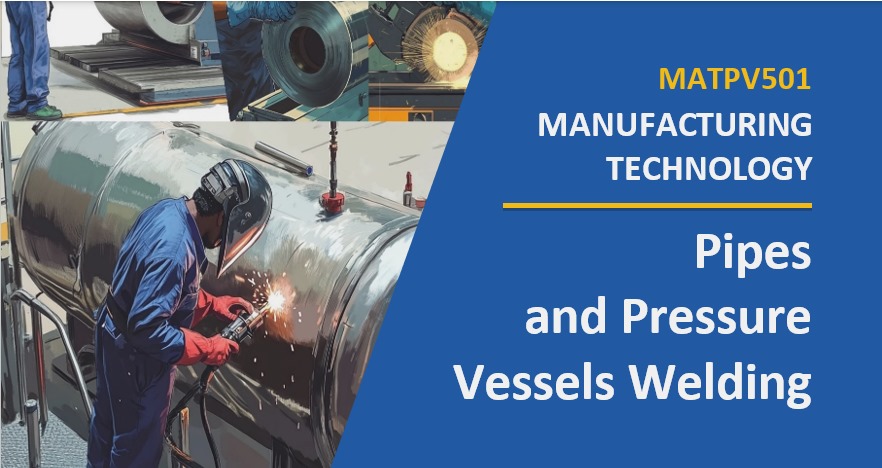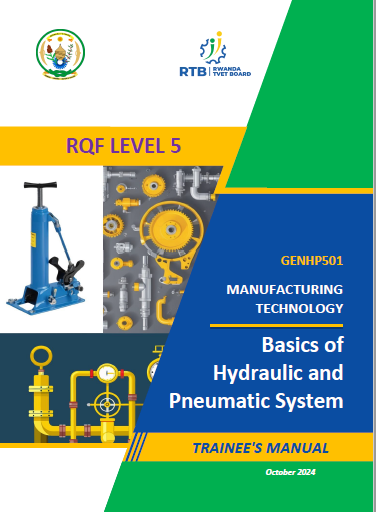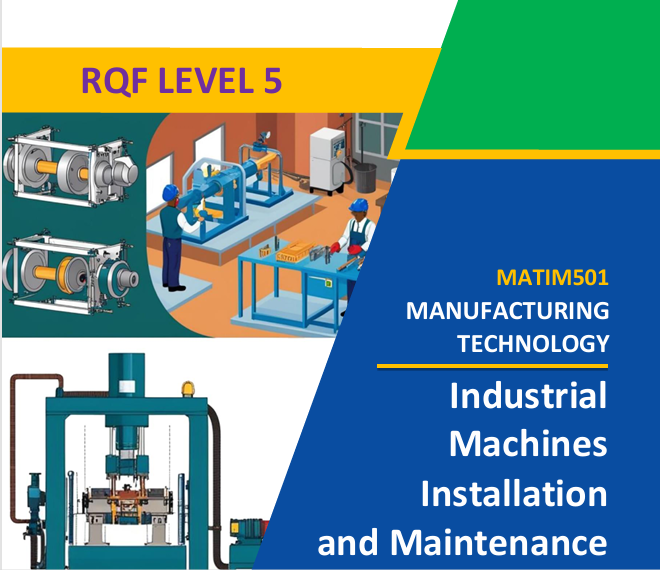This course, MATIM501: Industrial Machines Installation and Maintenance, will equip you with the essential skills to install, operate, and maintain industrial machines effectively. We will begin by performing fitting works, which includes preparing the workplace, assembling machine parts, and attaching accessories. Next, you will learn how to operate industrial machines by setting parameters, testing, and controlling production processes. Finally, we will focus on maintaining machines through fault diagnosis, predictive and corrective maintenance, and post maintenance procedures to ensure long term machine efficiency and safety.
The Milling Machine Operations (MATMO501) module builds learners’ ability to organize, set up, and perform milling operations safely and efficiently. Key concepts include milling machine operation principles, workplace hazard control, product drawing interpretation, and preparation of materials, tools, and equipment. It also develops skills in setting mechanical components, adjusting milling parameters, and mounting workpieces for precision. Additionally, it emphasizes executing milling processes, inspecting and finishing milled parts, and integrating theoretical knowledge with practical application to ensure high-quality machine setup, operation, and quality assurance.
- Teacher: NIYITEGEKA Jean Damascene
This course, Parts Production on CNC Machine will equips the learners with knowledge and practical skills to produce precision parts using Computer Numerical Control (CNC) machines. It covers CNC principles, machine components, and setup procedures such as tool selection, fixture installation, and workpiece alignment. Learners will develop and verify CNC programs using G-code, M-code, and CAD/CAM software. Emphasis is placed on cutting parameters, milling, turning, drilling operations and safe working practices to ensure efficient and accurate part production
- Teacher: NIYITEGEKA Jean Damascene
This course, "Pipes and Pressure Vessels Welding," provides comprehensive training on organizing the workplace, preparing workpieces, and assembling pipes and pressure vessels. Learners will first gain essential knowledge in setting up a safe and efficient work environment, including preparing tools, materials, and welding equipment such as MIG/MAG, TIG, and FCAW. The course then focuses on cutting, edge preparation, and forming workpieces. Finally, it covers the assembly process, product finishing, and quality testing. Each learning outcome includes detailed competencies, practical content, and end assessments to ensure skill development and application.

- Teacher: |GIRINSHUTI Fabrice
Hydraulic and pneumatic systems are both fluid power systems used in engineering and industry to transmit power and motion. They work by using a fluid as the medium to transfer energy from one point to another, enabling machines to perform useful work

- Teacher: NIYITEGEKA Patrick
Mechanical machine production is the process of creating machines and their components from raw materials. This field combines aspects of mechanical engineering, manufacturing technology, and management science to produce goods efficiently and economically.
- Teacher: NIYITEGEKA Jean Damascene

